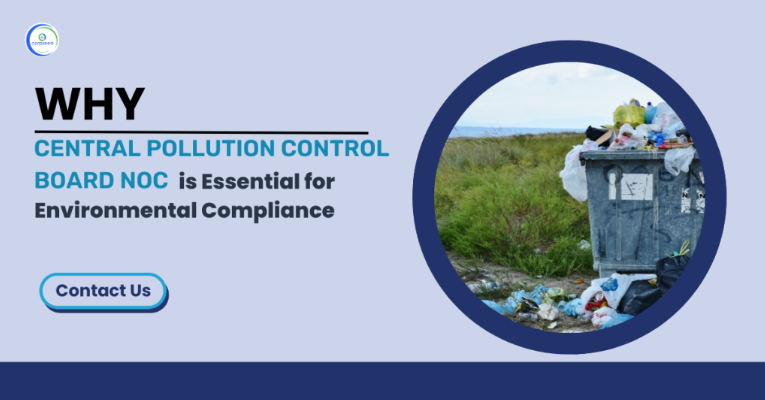Introduction:
The environment is facing unprecedented challenges due to rapid industrialization and urbanization. In the quest for economic growth, there is a growing realization that environmental sustainability is imperative. The Central Pollution Control Board (CPCB) plays a pivotal role in ensuring environmental compliance, and obtaining a No Objection Certificate (NOC) from CPCB is an essential step for industries and businesses. This article explores the significance of CPCB NOC in environmental compliance, its requirements, and its crucial role in promoting sustainable development.
Central Pollution Control Board (CPCB) NOC
Established in 1974, CPCB is entrusted with the responsibility of monitoring and controlling environmental pollution. One of the key tools employed by CPCB in this mission is the issuance of No Objection Certificates (NOCs) to industries and projects.
Requirement for CPCB NOC in Environmental Compliance
Obtaining a CPCB NOC isn’t just a legal requirement; it’s a commitment to environmental stewardship. It demonstrates your dedication to minimizing your environmental impact and operating within the established norms. The NOC is particularly crucial for:
- Setting Up New Industries: Whether you’re building a manufacturing plant or a power station, the CPCB NOC is mandatory for ensuring your project adheres to pollution control standards.
- Expanding Existing Operations: Even if you’re an established business, any significant expansion requires a renewed NOC to address potential changes in environmental impact.
- Certain Industrial Activities: Specific industries, like mining, chemical manufacturing, and waste management, are subject to mandatory CPCB NOCs due to their inherent environmental risks.
How CPCB NOC is Often Linked to Environmental Impact
The NOC isn’t simply a rubber stamp; it’s a comprehensive assessment of your project’s potential environmental impact. The CPCB meticulously reviews aspects like:
- Air and Water Pollution: The NOC ensures your operations have adequate pollution control measures to minimize emissions and discharges, safeguarding air and water quality.
- Waste Management: It assesses your waste generation, treatment, and disposal practices, ensuring responsible management and minimizing environmental contamination.
- Resource Utilization: The NOC promotes efficient resource utilization by evaluating your water and energy consumption and encouraging sustainable practices.
Essential Role of CPCB NOC in Environmental Compliance and Sustainable Development
- Ensuring Adherence to Environmental Norms: The CPCB NOC acts as a regulatory instrument that compels industries to comply with established environmental norms. This, in turn, minimizes the negative impact of industrial activities on the environment.
- Promoting Sustainable Practices: By scrutinizing the environmental impact of a project, CPCB encourages the adoption of sustainable practices. Industries are incentivized to implement eco-friendly technologies and processes, contributing to the long-term well-being of the environment.
- Protecting Public Health: The NOC process considers the potential health hazards associated with a project. By ensuring that industries meet stringent pollution control standards, CPCB safeguards the health and well-being of the surrounding communities.
Conclusion
It acts as a gatekeeper, ensuring that industrial and developmental projects align with stringent environmental standards. The NOC not only protects the environment but also fosters a culture of sustainable development, where economic progress goes hand in hand with ecological responsibility. In the journey towards a greener and healthier future, the CPCB NOC emerges as a crucial instrument for shaping a harmonious coexistence between industry and the environment.
Read More – newsethnic








Leave a Reply